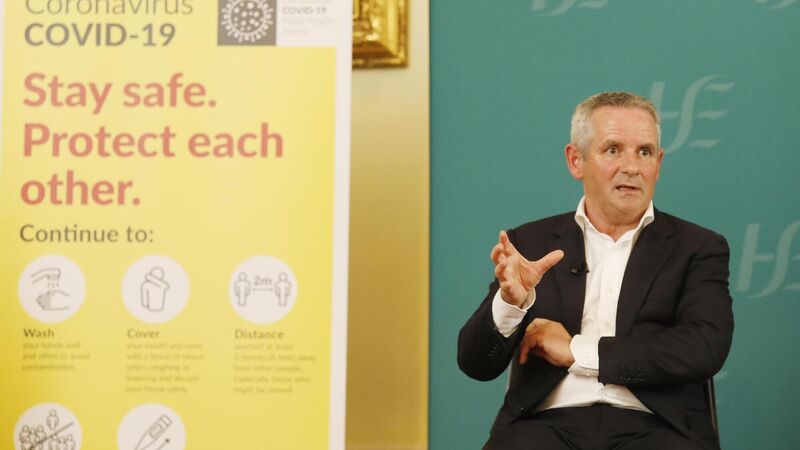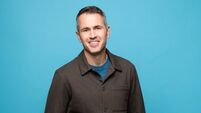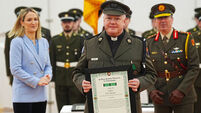HSE chief: Ireland on a ‘dangerous road’ unless we take stock of Covid-19 now

HSE CEO Paul Reid made an urgent and direct appeal for everyone to take stock of the current rise in Covid-19 cases
The country is on a “dangerous road” unless we all take stock of the risks associated with Covid-19, the chief executive of the HSE has warned.
Paul Reid made an urgent and direct appeal for everyone to take stock of the current rise in Covid-19 cases, which is beginning to impact on older citizens and has the potential to overwhelm the health service.
Addressing the weekly HSE briefing on Thursday, Mr Reid said the country was at a “concerning crossroads” given the “continuing rising trend” in Covid-19 infections, the viral positivity rate, the number of people in hospital and intensive care, the number of deaths and as it heads into the winter period.
There are currently 73 people in hospital with Covid-19 and 14 in intensive care and the upward Covid-19 trend, he said, was impacting on the health service with some hospital wards “frozen” or closed.
“I don’t paint that picture to be a prophet of doom but these are the facts, the data, and the evidence of where we currently are,” Mr Reid said.
Everybody, he said, needed to take Covid-19 “very seriously again” and to collectively take precautions to prevent the virus spreading.
“If we don’t, we’re on a very dangerous road and trajectory; the evidence provides it, the experience across Europe provides it,” Mr Reid said.
“It is about community transmission coming into our schools, into our hospitals, into our nursing homes; that’s the biggest risk we all face,” he added.
Read More
The briefing also heard that 2,100 pupils and staff across 96 schools were tested for the virus since schools reopened; 35 people have tested positive to date.
While the number of children up to 10 years of age being referred for testing had increased there was fewer testing positive for the virus.
HSE Chief Clinical Officer Dr Colm Henry said schools did not present an increased risk of community transmission: “Cases in schools do not seem to be driving community transmission. In fact, it’s the other way around,” Dr Henry said.
Public health officials had identified two to five cases involving interschool transmission or transmission between schools but international evidence did not suggest this type of transmission was common, he said.
“The first and strongest line of defence is ourselves and our behaviours,” Dr Henry said.
The HSE did not go into detail on the plan to deliver and support services over the winter period, which is due to be published next week, but did confirm that private hospitals will have a role to play in delivering services, diagnostics, the National Treatment Purchase Fund, and discussions are ongoing about securing additional capacity, including intensive care beds, in the event of a “surge” in Covid-19 cases.
Community assessment hubs will also have a different remit this winter, focusing on managing respiratory illnesses and helping to screen Covi-19 and non-Covid-19 illness.
The capacity of the testing system, Mr Reid said, would be reviewed on a daily basis, with community testing demand taking precedence over serial testing in nursing homes, direct provision centres and food plants.
The HSE confirmed that 3,000 rapid tests are available to hospitals on a weekly basis for priority testing pre-surgery or in emergency situations but there are challenges internationally in accessing rapid tests.
A national pandemic workforce of around 3,000 staff is being put in place and an updated testing and tracing plan is being implemented.
Mr Reid, however, expressed concern that the health system could be overwhelmed if the virus is not contained.
He said: “We’re not there but we could get there very soon if we see the trend continuing and doubling and multiplying as it is”.
The system, he said, could not tolerate a significant Covid-19 surge like that being observed in Europe.
“We are seeing a massive surge in cases and the impacts of that on the hospital systems in France and Spain in and we can't let that happen to us,” the HSE chief said.
“We don’t want everybody locked away in quarantine but we do want people taking all of the precautions, all of the time,” he said.
Read More





